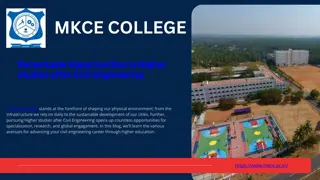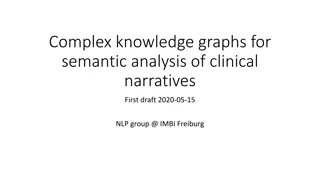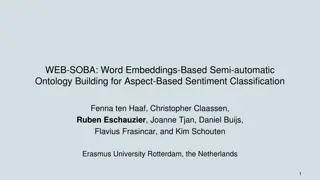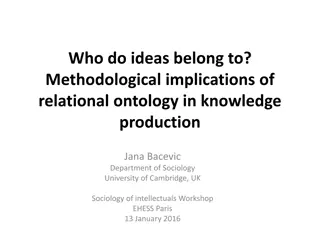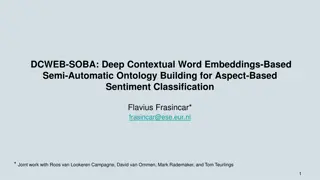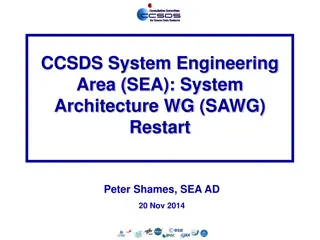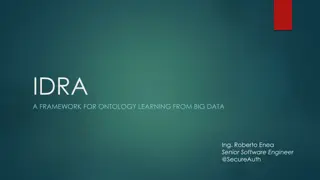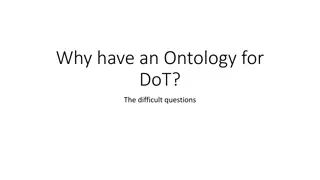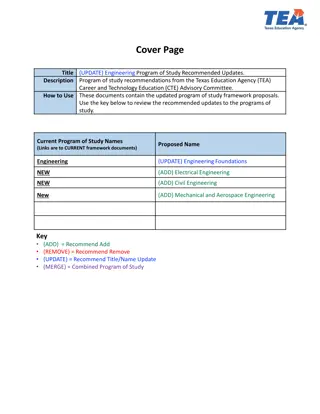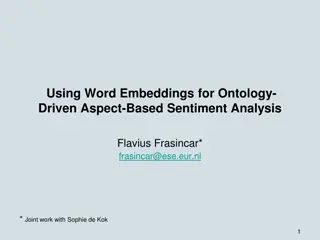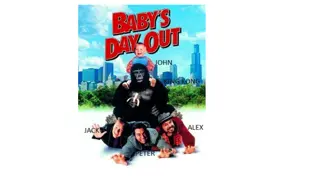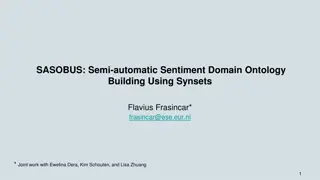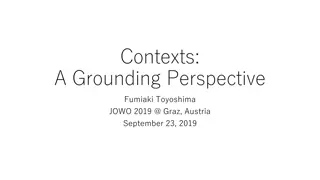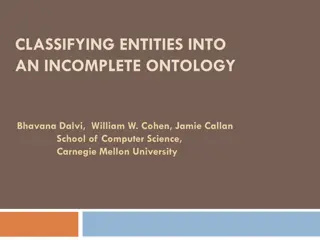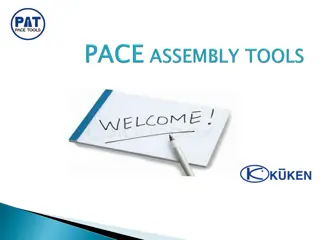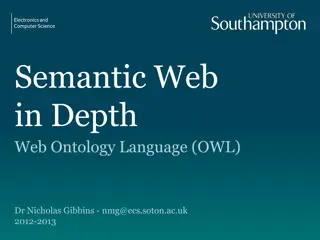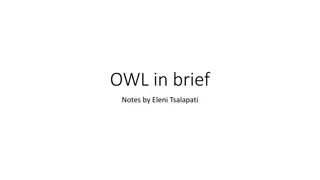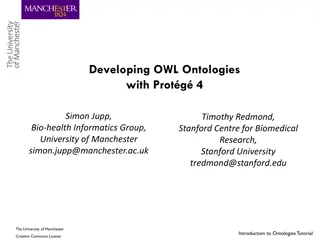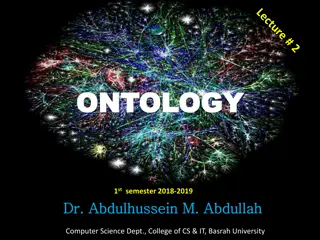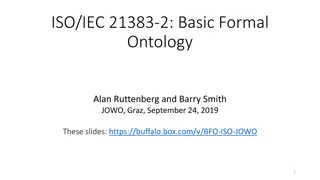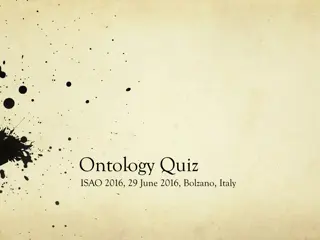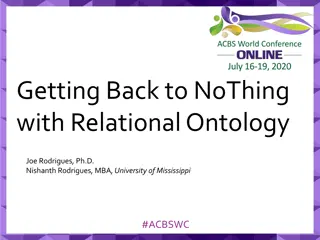Challenges and Opportunities in Ontology Engineering Tools
Prof. Enrico Motta discusses the limitations of current ontology engineering tools, emphasizing the need for better support for creating ontological specifications. The lack of tools that offer a knowledge-level perspective and assist in sensemaking, navigation, and identifying relevant definitions hinders the effective development of ontologies. The importance of addressing basic modeling errors in published ontologies is highlighted, suggesting room for improvement in the field.
Download Presentation

Please find below an Image/Link to download the presentation.
The content on the website is provided AS IS for your information and personal use only. It may not be sold, licensed, or shared on other websites without obtaining consent from the author.If you encounter any issues during the download, it is possible that the publisher has removed the file from their server.
You are allowed to download the files provided on this website for personal or commercial use, subject to the condition that they are used lawfully. All files are the property of their respective owners.
The content on the website is provided AS IS for your information and personal use only. It may not be sold, licensed, or shared on other websites without obtaining consent from the author.
E N D
Presentation Transcript
Suitability of Ontology Engineering Tools Prof Enrico Motta - Knowledge Media Institute, The Open University, UK - Information Science and Media Studies, University of Bergen, Norway 1
Premise Mathieu: Can you prepare a statement about the suitability of ontology engineering tools? Enrico: Ah!.... I had not realised there are ontology engineering tools out there . An Ontology is an explicit specification of a conceptualization . The idea of ontological commitment is based on the Knowledge- Level perspective (Gruber, 1993) Current tools neither support a specification process, nor provide a knowledge-level perspective. Typically they support OWL/RDF development, which is usually not sufficient to generate a satisfactory ontological specification. Indeed, the original Knowledge Sharing initiative at ARPA focused on the use of formalisms such as Ontolingua/KIF (now evolved into CommonLogic) Ontology specs are often created by hand (with no tool support) and only later a OWL/RDF schema is generated e.g., see (Motta, IEEE Access 2020). It is normal to find rather basic modelling errors in published ontologies (even well- known ones)
Better support for reuse (identifying relevant definitions) 4
Better support for reuse (identifying agreement/disagreement) Experiment: assessing statements related to the class Seafood in Watson: Nb1: #ontologies in which the statement appears. Nb2: #ontologies containing entities matching the subject and object of the statement. a: global agreement, d: global disagreement, cs: consensus, ct: controversy


